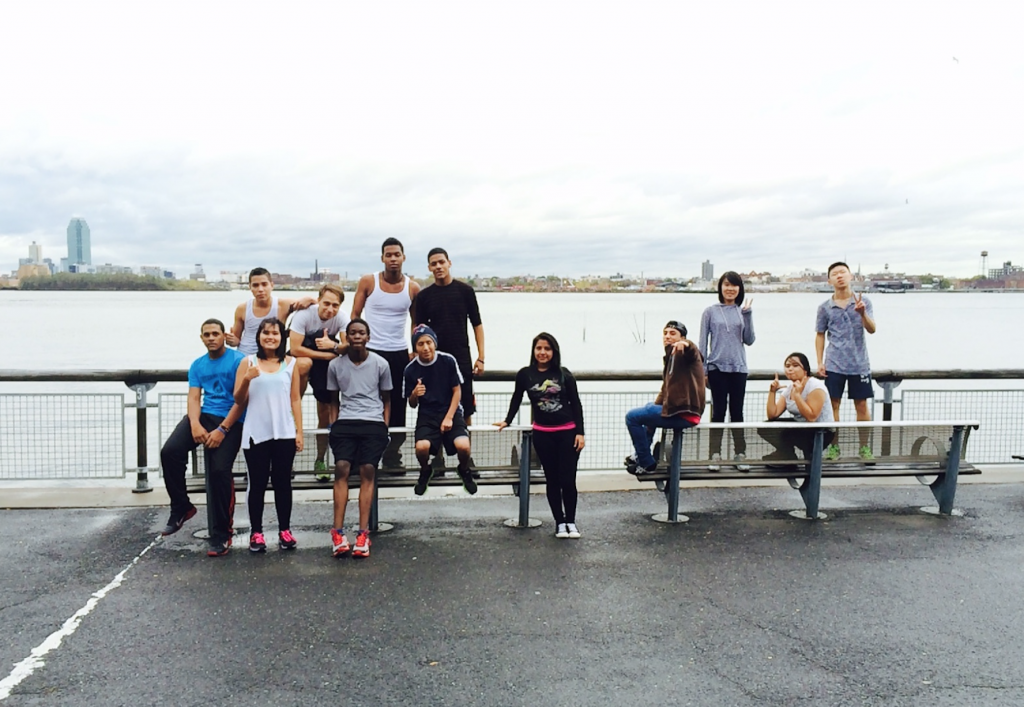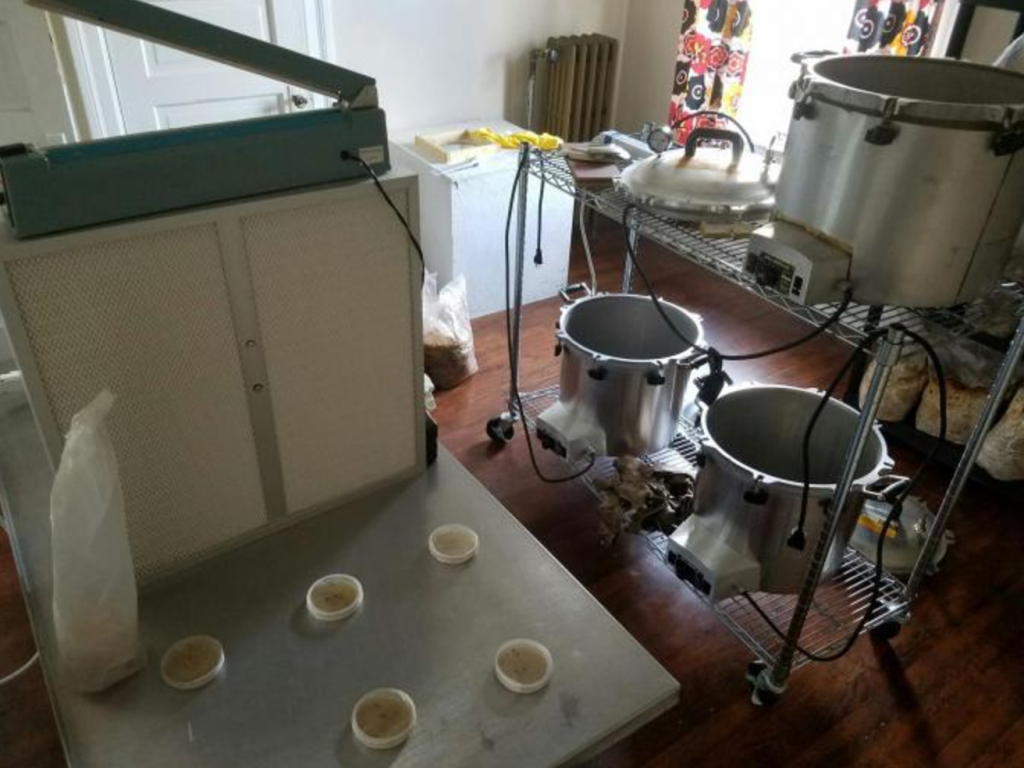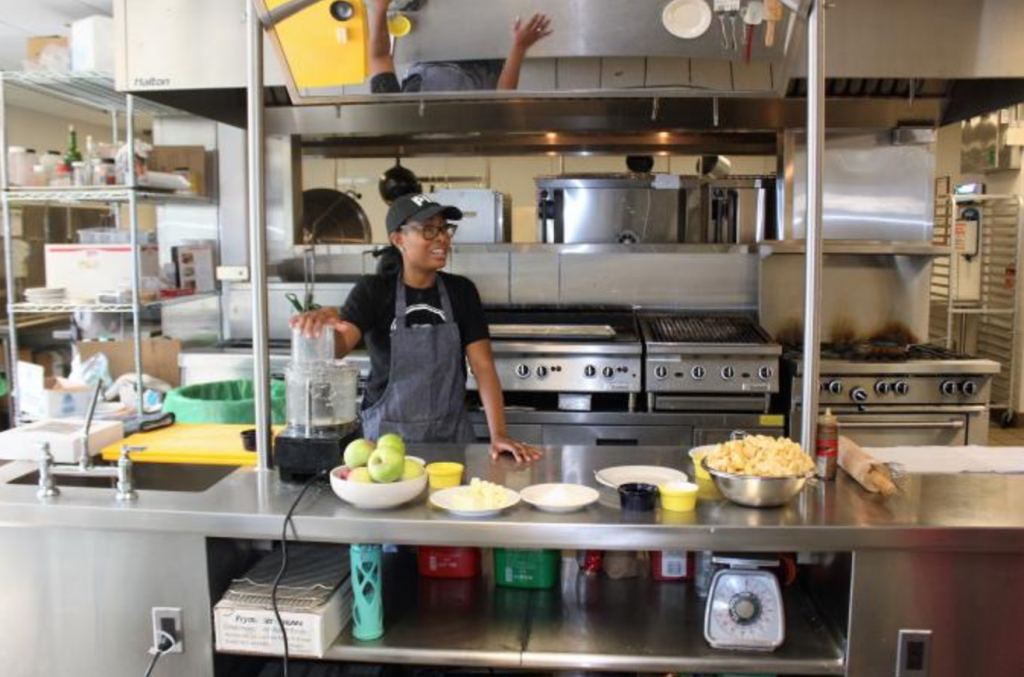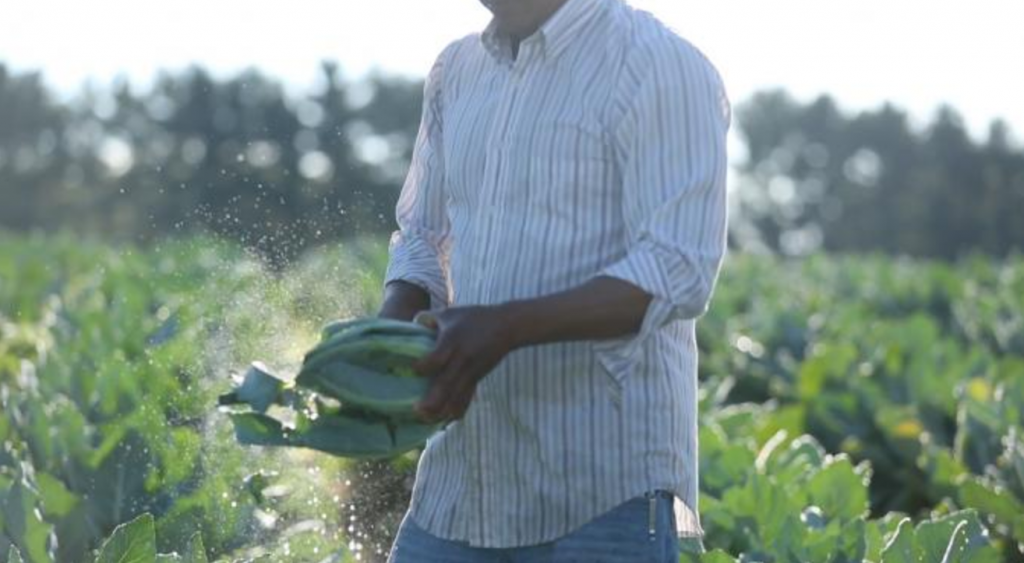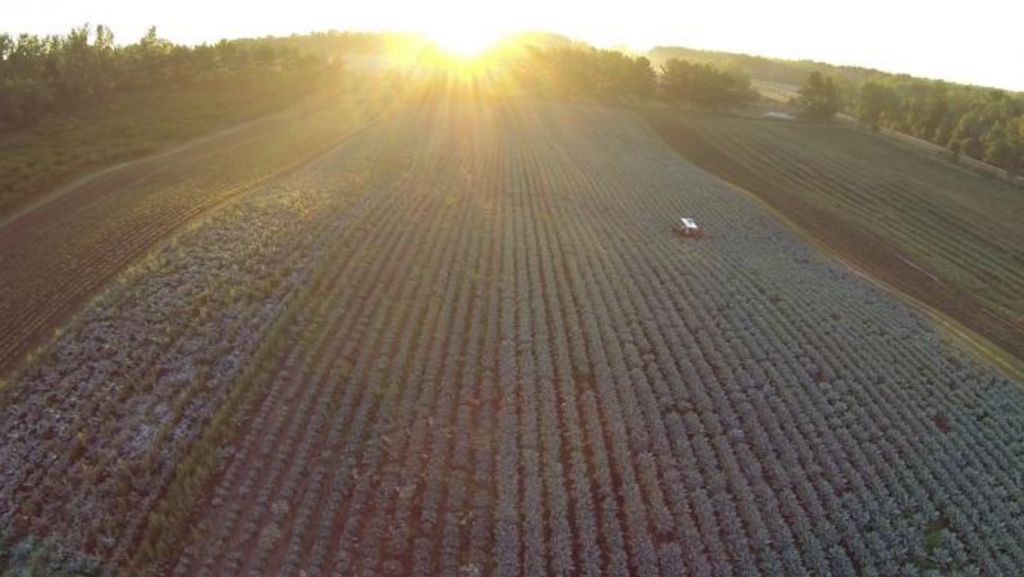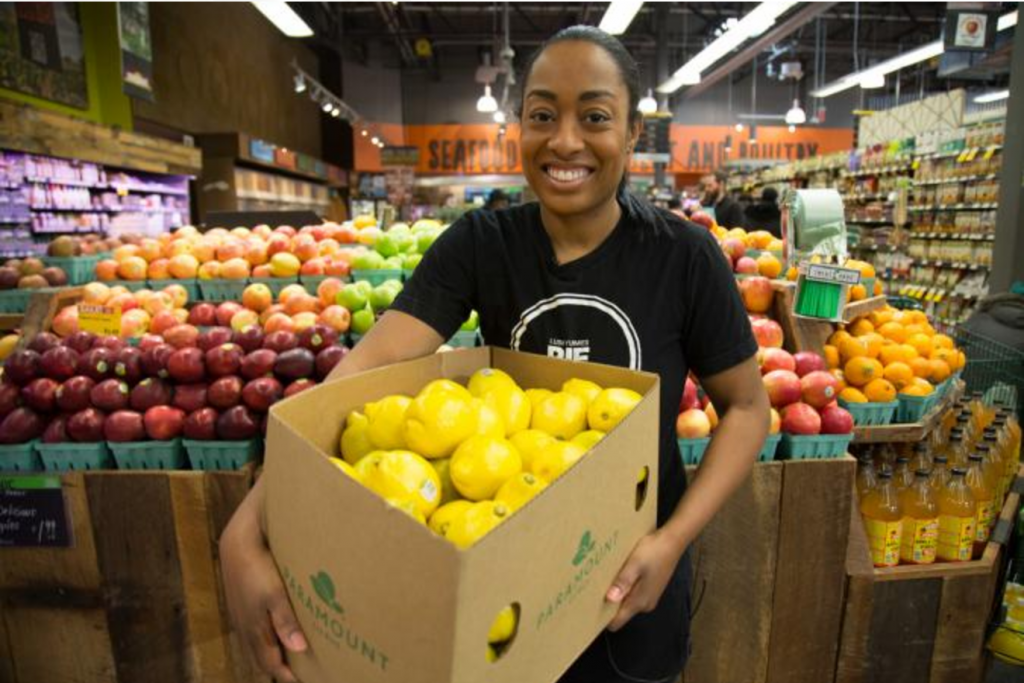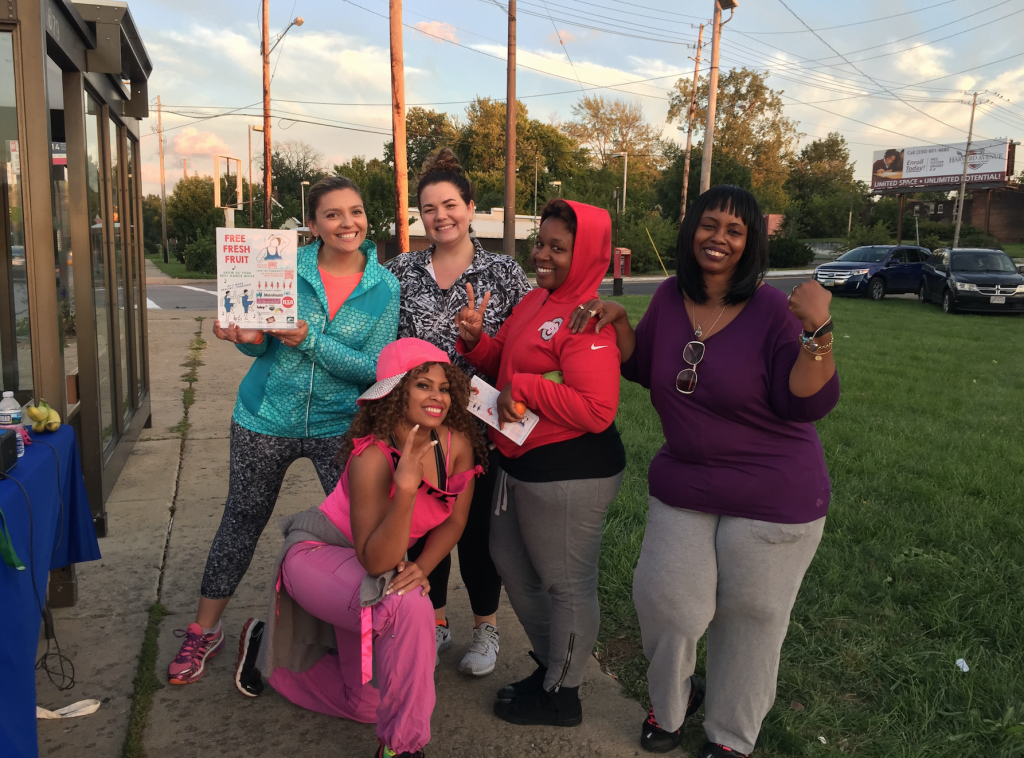This spring, ioby and Eastern Market are partnering to present the Eastern Market Growing Communities Matching Grant Challenge. We’re offering 17 awesome local food entrepreneurs the chance to double the donations made to their projects on ioby’s website between now and April 3—dollar for dollar, up to $250 per donation, and up to $3,000 total. Here’s a closer look at one of fabulous projects getting underway now.
“Food is universal; it’s what everybody shares in common,” says Jacob Schoenknecht, Director of Small Batch Detroit, a program of the Detroit Food Academy, and leader of the ioby campaign Mixing Up Detroit Youth Entrepreneurship. “But our program isn’t just for foodies, or about making people into chefs: it’s about leadership and entrepreneurship. Food is just the medium.”
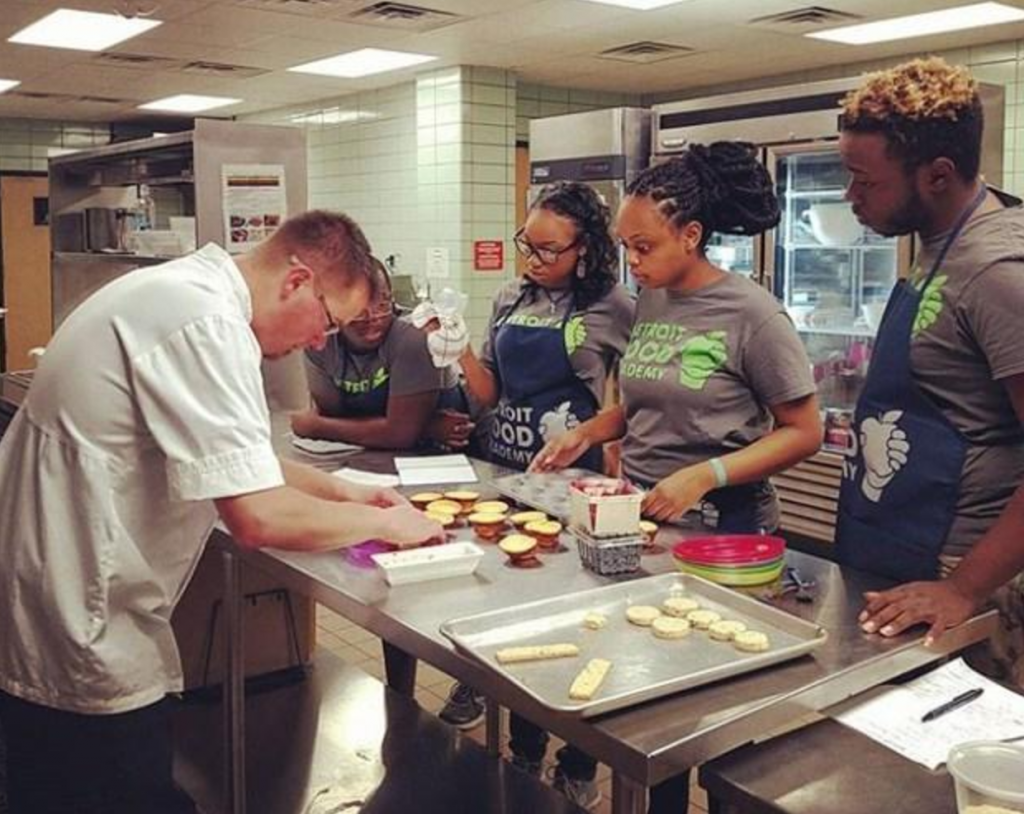
Detroit Food Academy (DFA) works with local educators, chefs, and business owners to give young Detroiters (ages 13-24) self-directed, entrepreneurial, real world experiences rooted in food—from creating healthy meals for their families to facilitating complex conversations about food systems with their community. The Small Batch Detroit program grew out of the earliest of DFA’s student-initiated products: the lip-smacking snack known as Mitten Bites (an homage to Michigan’s mitten-like shape). The cookie-turned-granola-bar, made with locally grown ingredients, “quickly became synonymous with DFA,” Jake says. “People would always see our students out offering samples and selling them.”
In the past few years, Jake has overseen the expansion of Small Batch from a summer program into a business staffed by DFA students and alumni that paid out $30,000 in wages last year, and is on track for $50,000 in 2017. They’re at Eastern Market every Saturday, year-round, and on Tuesdays in the summertime, spreading the Mitten Bites love to thousands of Detroit-area shoppers. Jake says their presence there leads to more than just sales and increased brand awareness: “Eastern Market’s helped us out a ton. A lot of our students have been hired by other vendors there who’ve seen them at work.”

Small Batch participants do indeed work for their success—on multiple levels. In addition to being trained to make Mitten Bites in the kitchen and sell them to the public, students can advance within the program and take classes about financial literacy, become team managers, learn advanced cooking techniques and production standards, and even take a shot at creating their own new products. “They’re really all ‘leaders,’ not just ‘students,’” Jake says. “On top of dealing with school and the everyday life challenges that a lot of young people in Detroit face, Small Batch participants also take on the commitment of coming here to learn, grow, and give back to DFA.”
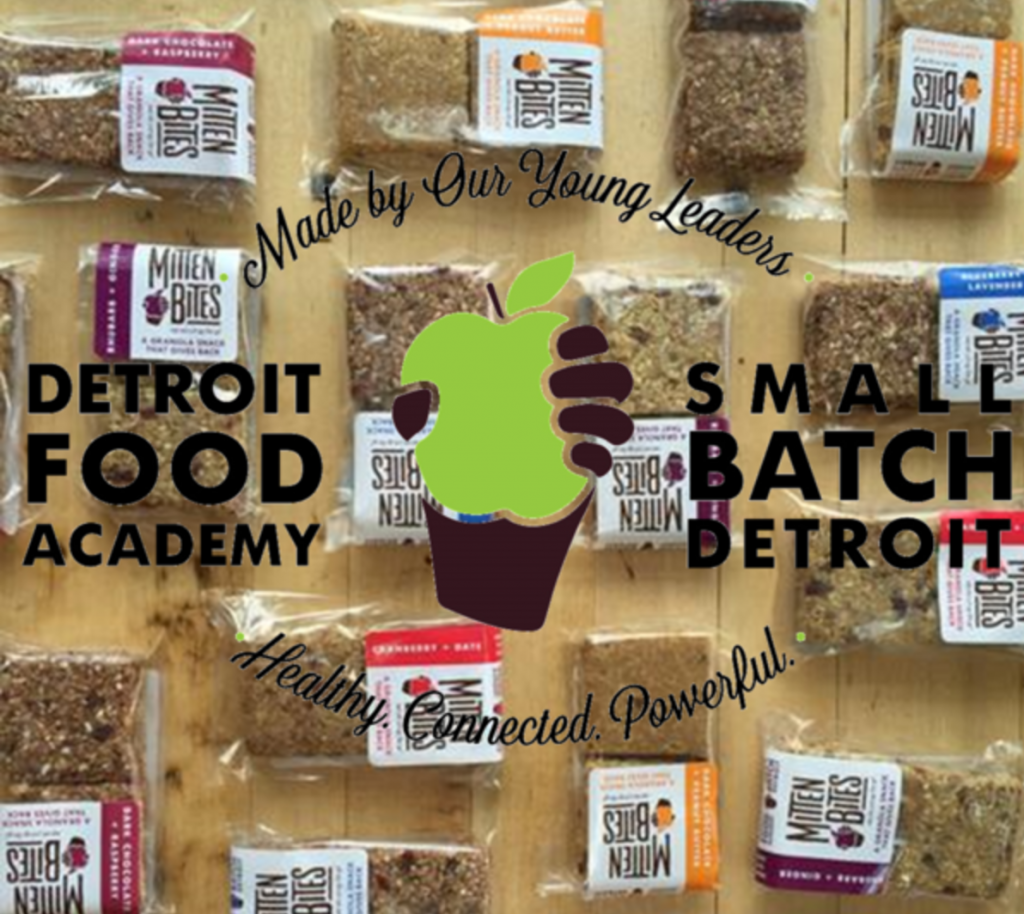
Mixing Up Detroit Youth Entrepreneurship is raising money for the purchase of a 60-quart commercial mixer that Jake hopes will allow Small Batch to quadruple its production output in the same amount of kitchen time. “We’ve already evolved our process quite a bit in the past few years,” he says. “When I first got here, we were mixing our ingredients in a 20-quart mixer and scooping them out by hand, which took forever and gave everyone carpal tunnel syndrome!” The program has since procured an automated sealing system for its packages, and will soon be getting a custom-made hydraulic flattener; the mixer is the last big piece of equipment they need to reach optimal production speed and uniformity.
Their crowdfunding experience has been great so far, Jake says. One reason? It’s easy for donors to see what they’re giving to. “A lot of times with nonprofit fundraising, when organizations just say ‘this is the work we do, please fund us,’ donors can feel unclear about where exactly their money will go,” Jake says. “But this is so practical.”
Jake thinks a similar practicality is at play in the success of Small Batch as a whole. “Whether you’re interested in business management, the culinary arts, becoming an entrepreneur of any kind… There are so many ways that each person’s own enjoyment can come out in this context. You don’t get too many people joining the basketball team who aren’t interested in playing basketball! But we get plenty of students here who don’t come in super interested in cooking, but who still leave the program with lots of useful knowledge and skills.”
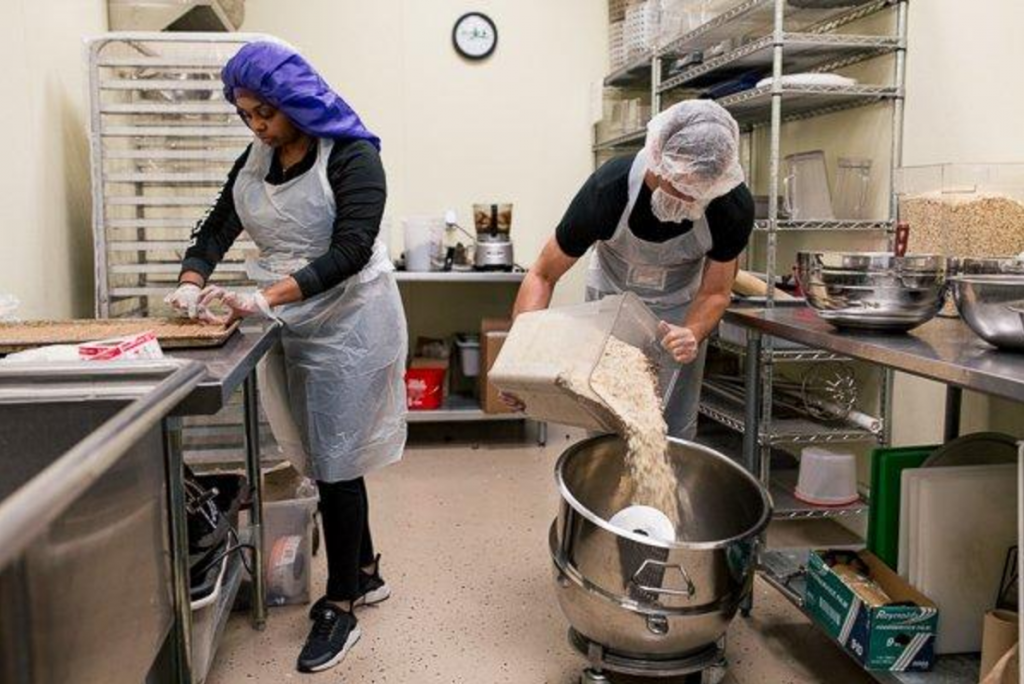
Jake is working to make Small Batch totally sustainable, meaning that sales of Mitten Bites will both pay the program’s expenses and generate additional proceeds for DFA. He also wants it, eventually, to be run exclusively by alumni. “I want to get this down to a science so that it can be run by just a few people, and then we could start another product and expand again.”
Ideally, Jake sees Small Batch becoming a consistent source of job training, employment, and networking for young Detroiters, as well as the “counseling arm” of DFA that can help them identify and address their personal and professional goals more broadly.
To this end, Jake says the best way to help Small Batch is to purchase Mitten Bites: at Eastern Market, in area Whole Foods, and online—with more outlets in the works. “People anywhere will buy Girl Scout cookies because they get the connection,” he says. “I want people to know that they can buy this granola bar from Detroit and be doing something good for the city and for these kids, while treating themselves to a good snack.”
Learn more about Mixing Up Detroit Youth Entrepreneurship on their campaign page, and check out all the Eastern Market Growing Communities Matching Grant Challenge winners! If you see something that moves you, remember your supporting dollars will go twice as far until April 3.


